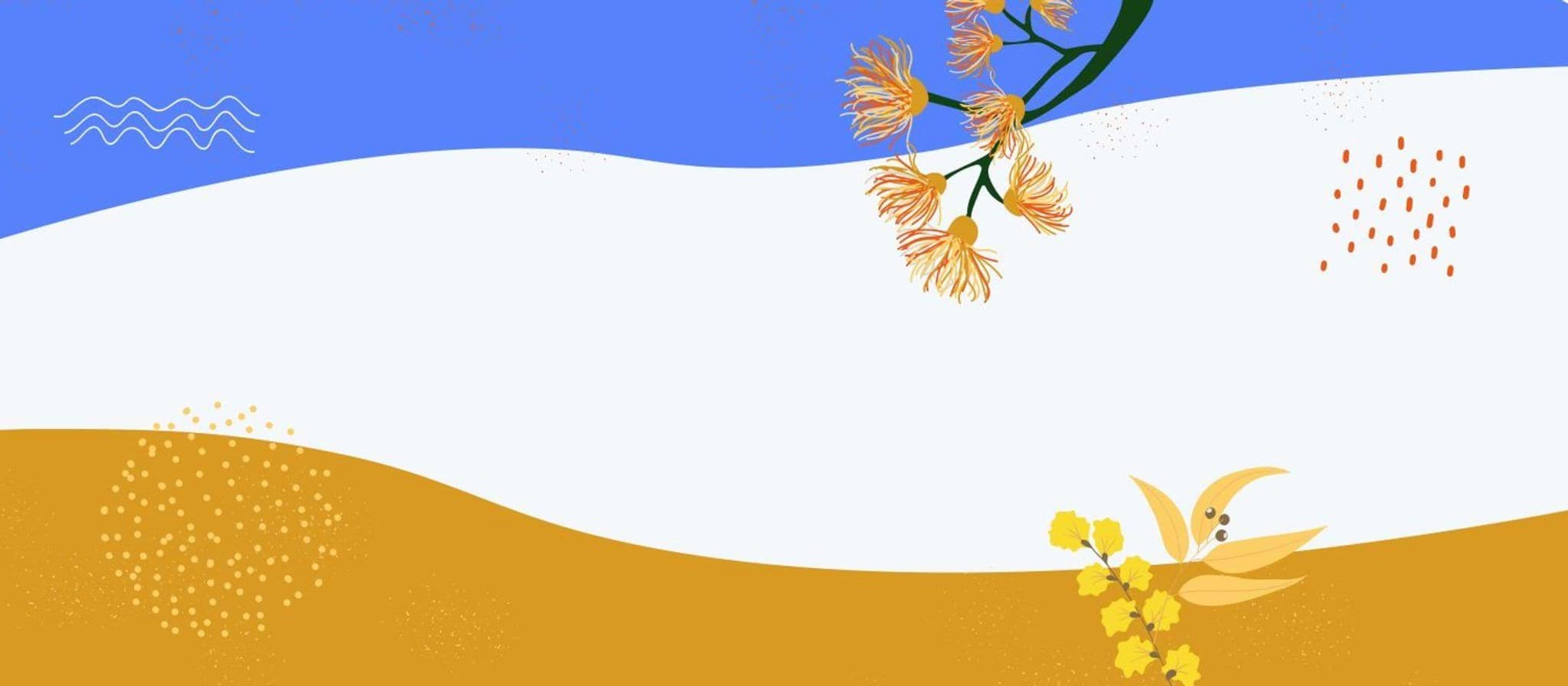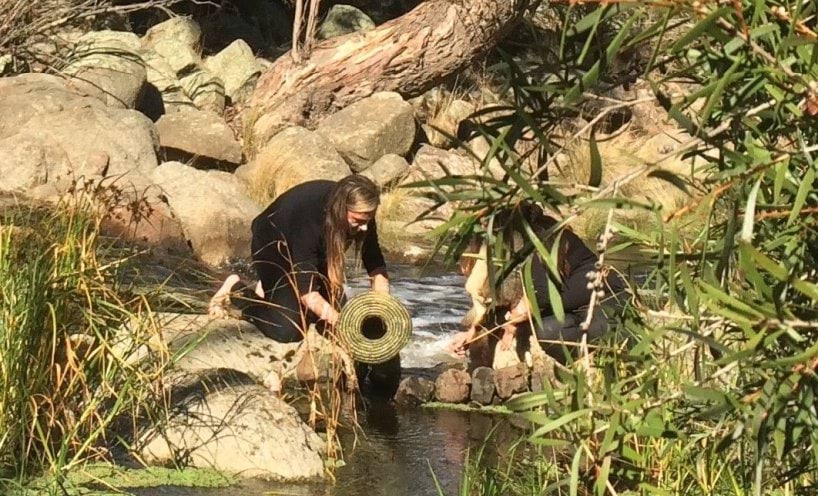Tammy Gilson
Tammy Gilson is a Wadawurrung ba-gurrk (woman) who lives on Wadawurrung Country. She grew up in Gordon – her Nan’s Country. Tammy acknowledges her ancestors and elders who have stood before her and all first nations people. Her spiritual connection to her ancestors and Country has guided her to revitalise and continue cultural practices today.
Tammy works as an Aboriginal Inclusion Coordinator in the Grampians region and has extensive knowledge of cultural heritage and natural resource management including traditional fire burning practice, mapping cultural values and awakening Wadawurrung language. She is also studying a Graduate Diploma in Land and Sea Country Management at Deakin University, which Tammy says has immense benefits for her work.
She has performed ceremony for Prince Edward, Xavier Rudd, the AFL and danced with Yothu Yindi and the Treaty band.
She also has a creative and passionate side to practice an old craft of basket weaving, which has recently won her the RMIT emerging artist award for a woven flower basket at the Koorie Heritage Trust in Melbourne.
Living, working and Caring for Country
Read more about Tammy's passions, views on Victoria's first-ever Nature Festival and hear one of her Mob's stories.
Jackson Chatfield
Jackson Chatfield is a Gunditjmara man who was born and raised in Warrnambool. He now lives at Port Fairy, where he works as the State-wide Aboriginal Landcare facilitator.
Jackson spent 4 of the past 5 years in Melbourne and while he didn’t lose his connection to Country, he is glad to be back home. “It definitely felt a little like something was missing while I was in Melbourne,” Jackson said. “Being home the past 12 months has left me refreshed and re-energised which shows the power and value of being on Country.”
Connecting with nature outside your front gate
Read more about one of Jackson's most important places on Country, why the history of Australia is important to him and how he has stayed connected to nature during Coronavirus (COVID-19).
Updated

